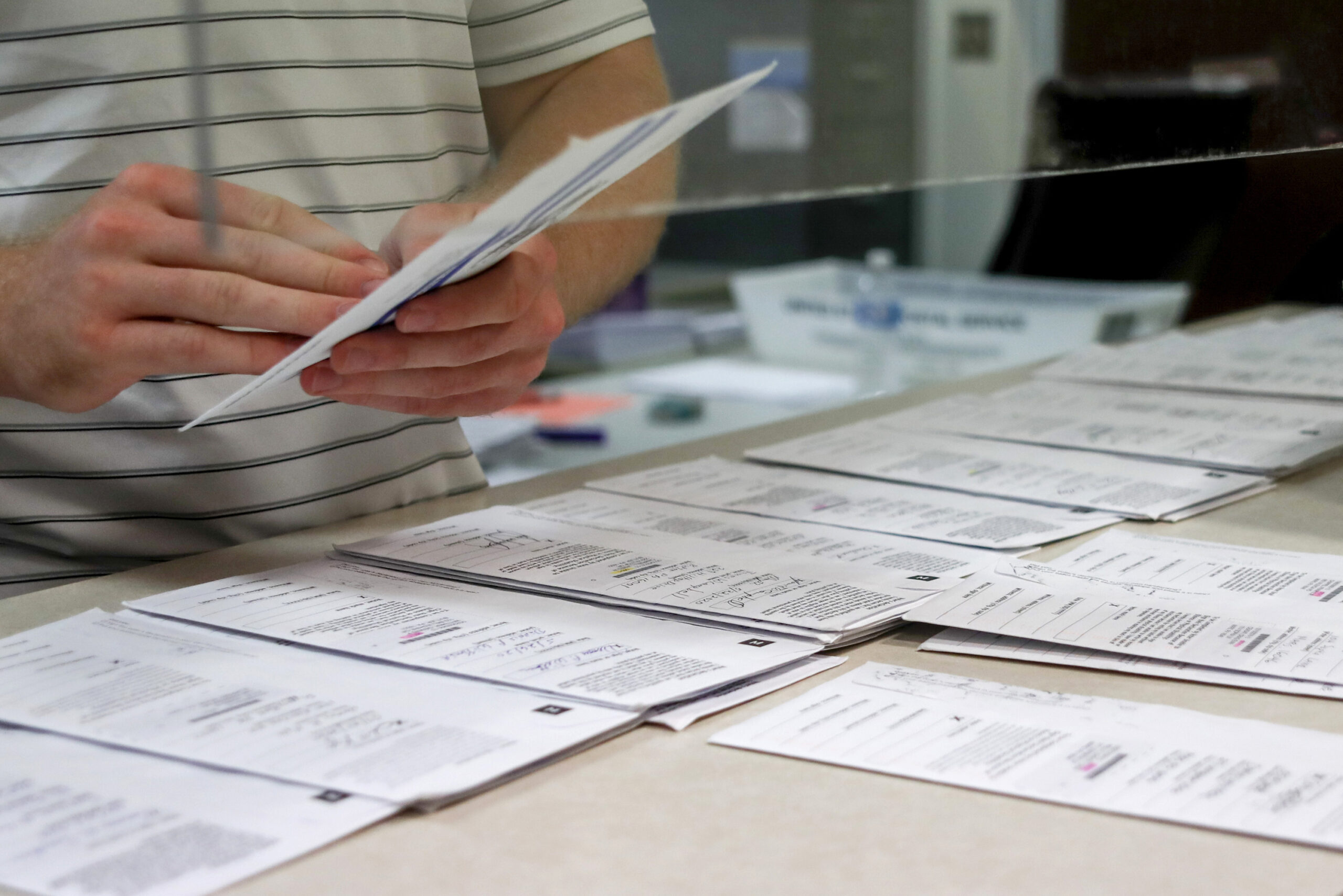Georgia Sent Out Nearly 7 Million Absentee Ballot Applications For Primary, But Proposed Bill Won’t Let It Happen Again

The change comes after complaints surfaced after the state’s June 9 primaries that some votes, particularly those where voters marked a selection with a check mark or an X, were not picked up by scanners despite the intent being clear.
Keith Srakocic / Associated Press
Updated Wednesday at 2:50 p.m.
An amendment to Senate Bill 463 would prohibit the Georgia secretary of state or county elections officials from sending out unsolicited absentee ballot applications. The amendment passed along a party-line vote, and the bill itself was approved by a majority of the committee.
It’s a direct rebuke to the action taken by Secretary of State Brad Raffensperger in March of this year when he sent out applications to all 6.9 million active voters amid the coronavirus pandemic.
Georgians responded to the applications in an unprecedented way, as more than 1.1 million votes were cast by absentee ballots for the June 9 primary elections.
But the influx in absentee ballots led to issues in many counties as local officials had to process those requests. Some voters didn’t get their ballots, while others got their ballots but chose to vote in person anyway. That snarled lines as poll workers labored to cancel those ballots.
“This is not in any way prevent anyone from asking for an absentee ballot or voting absentee,” said Republican Rep. Shaw Blackmon, the chair of the Government Affairs Committee. “All this says is that we’re not going to flood – and that’s what we saw happen on June 9, and that was the reason we saw this submitted – we’re not going to flood this with added mailings or unsolicited absentee ballots so that we actually create some additional problems for our counties.”
But Democratic Rep. Renitta Shannon pointed out that Raffensperger has already said he wasn’t going to send out mass ballot applications again.
“This amendment is not needed, the secretary of state has already made a ruling on this, and all this does is seek to remove local control. That’s all it does,” said Shannon.
Moments after the amendment was adopted, voting rights group Fair Fight Action put out a statement on Twitter:
“Rural counties are currently seeing COVID surging and are bracing for a tough fall. If a county wants to help their community safely participate in elections, this proposed law would prohibit them to decide themselves if they want to send absentee ballot request forms to voters.”
Later, Raffensperger weighed in, although he did not directly comment on the potential usurpation of his power.
“What we are seeing today is the continued weaponization of election administration by both the left and the right. I call on both sides to stop trying to politicize election administration,” Raffensperger said in a written statement.
He again defended his decision to send out absentee applications in March.
“I chose to send a clear, uniform application utilizing barcode technology to assist counties in processing. We also procured a mail vendor to package and mail ballots, taking on what would have been a crushing blow and expense to counties,” said Raffensperger.
In the statement decrying the politicization of elections, he made no further mention of Republicans, but lambasted “liberals,” claiming that they want “elections with no voter ID, no citizenship check, and unlimited ballot harvesting.”
The bill now goes to the full house for a vote. The legislative session is slated to end on Friday.








